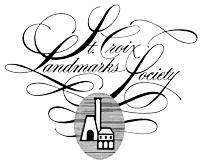Excerpt from "Christiansted Apothecary Hall"
by George B. Griffenhagen, Pharmacist,1996
Everything was looking rosy in 1815 for the Danes residing in St. Croix. The British, who had been occupying the Caribbean island for a dozen years, returned St. Croix to Denmark in 1815. Sugar cane plantations multiplied, and the worldwide market for rum continued unabated. Christiansted, founded in 1735 by the Danes on the site of an earlier French settlement called Bassin, Inow served as the capital of the Danish West Indies, and the population had increased to 5,000 people.
The newly appointed surgeon for the Danish military garrison in Christiansted, Paul-Elias Schlegel (1784-1849), sought a pharmacist to prepare medicines for his troops. A 28-year-old Danish pharmacist accepted the challenge, arriving in St. Croix on November 18, 1816, to assume his new position.
He was Peder Eggert Benzon, born in Vestenskov, Denmark, on October 27, 1788, son of Lorentz Jacob Benzon (1740-1799) and Dorothea Bertelsen 1764-1808). After commencing work at the age of sixteen in a Vesterbro pharmacy, Benzon apprenticed pharmacy from 1804 to 1809 in the Hofapotek in Copenhagen, and he passed the Danish pharmaceutical examination on June 24, 1814.1
By 1818, Benzon had outfitted a Pharmacy Laboratory in Christiansted there he distilled large quantities of pharmaceuticals2for the military garrison as well as for other pharmacists and physicians in the Danish West Indies.3 On January 18,1819, for example, Benzon wrote in his diary that he "distilled 30 pots of Spirits." When he wasn't engaged in his Laboratory, Benzon was taking excursions throughout the Danish West Indies to study the flora, and to send botanical specimens to colleagues in Copenhagen.
As he was distributing his freshly prepared distillates, Benzon observed that other St. Croix pharmacists were dispensing what he described as "defective preparations." Then on April 14, 1819, Benzon wrote in his diary that he had been named official inspector for all pharmacies, as well as inspector of all imports of drugs into St. Croix. By 1821, Benzon was recommending the expulsion of other St. Croix pharmacists,4 but apparently he did not have the authority to implement his recommendations.
Unable to correct this situation by expelling those pharmacists whom Benzon did not feel were providing acceptable medicines, he applied in 1826 for a privilegium exclusivum (a Royal Danish monopoly) to operate the only pharmacy in St. Croix. On December 1, 1826, Benzon was approved by the Danish government to open a pharmacy, and on December 18 he advertised that his Pharmacie was located at No. 50 King's Street.5 On July 19, 1927, Benzon announced "Leeches [for blood-letting] for Sale at the Pharmacy in King's Street, No. 50, in this Town."6
Finally, on December 10, 1827, Benzon received his privilegium exclusivum for all of St. Croix. Benzon must have anticipated this action that gave him a royal monopoly to operate the only pharmacies in St. Croix. because he purchased the building at No.4 Company Street in 1827.7 Then on January 8, 1828, Benzon advertised that he and his family had moved to "the House No. 4 corner of Company and Queen's Cross Streets in Christiansted," and he established "a Dispensary...where those who may require Medicines at night will be pleased to apply."8
Taking advantage of his royal monopoly, Benzon announced that he would open on August 9, 1828, "the Filial Apothek (Dispensary Establishment) in Frederiksted...agreeable to the Royal Government's Resolution." Benzon advised that the Frederiksted pharmacy would be "under the direction of Candidatus Pharmaciae Mr. B. H. Winding as Provisor for the Establishment [and] is hereby made known for the information of the Public and the practicing Physicians in the Town of Frederiksted and its environs." Benzon signed the ad as "The royal privileged Pharmaceutical Establishment for St. Croix." 9
Benzon was elected in 1829 as Christiansted "judge" (whose duties were more like those of a "chief constable"), a position which he held until 1834. Commencing in the following year, Benzon was identified with the title of "Captain," and he also served on the five man "building committee for the rehabilitation of the Danish Church of Christiansted."10


